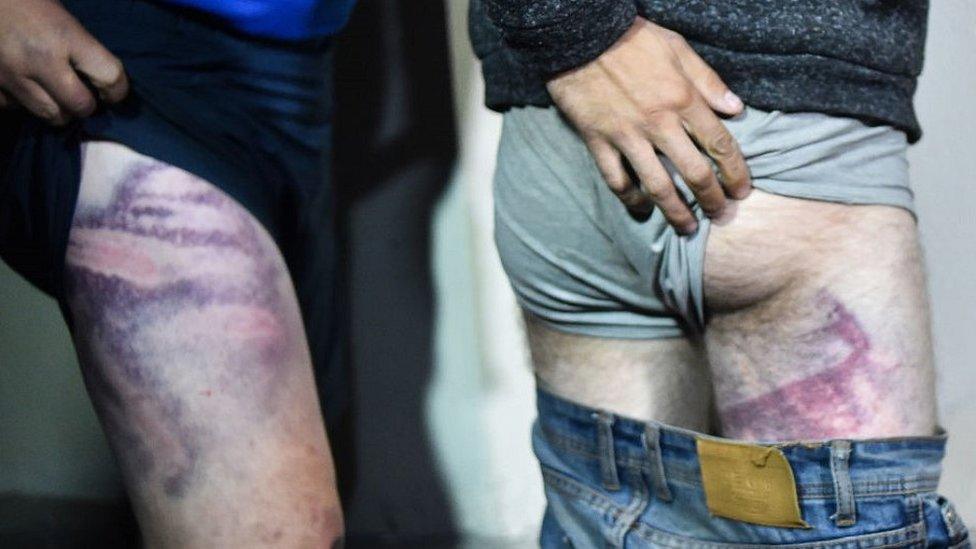Belarus jails Belsat TV journalists for filming protest
- Published
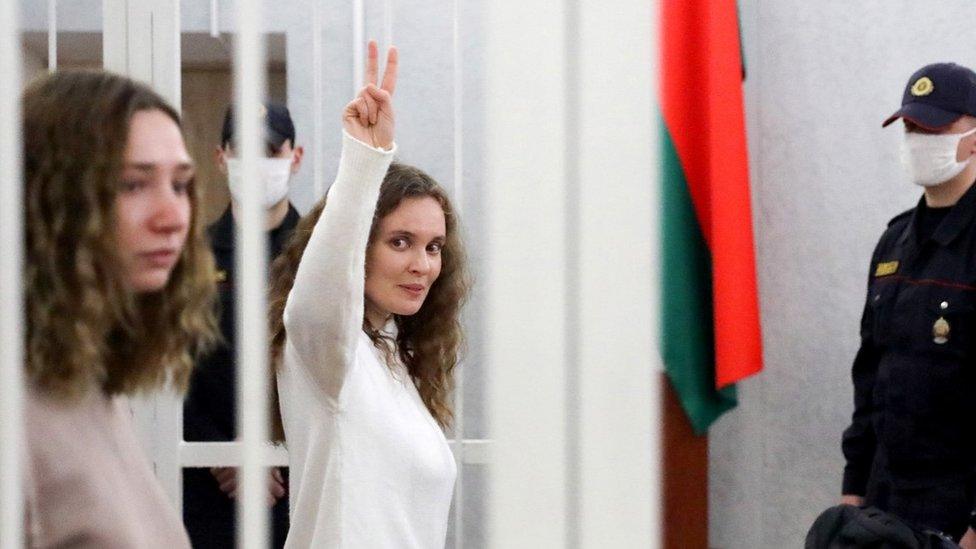
Katerina Andreyeva gave a victory sign in court, next to Daria Chultsova
A Belarus court has jailed two TV journalists for two years on charges of fomenting protests, for filming a rally against the country's leader.
Katerina Andreyeva, 27, and Daria Chultsova, 23, were arrested in a Minsk apartment block in November while live-streaming an unauthorised protest.
They are with Poland-based Belsat TV.
Mass protests took place across Belarus after Alexander Lukashenko claimed victory in a presidential election in August widely condemned as rigged.
Belsat TV rejected the accusation that by broadcasting footage of the demonstration the two journalists had disrupted bus services in the Belarusian capital.
Mr Lukashenko has been in power since 1994 and on Wednesday a man once seen as his main challenger went on trial.
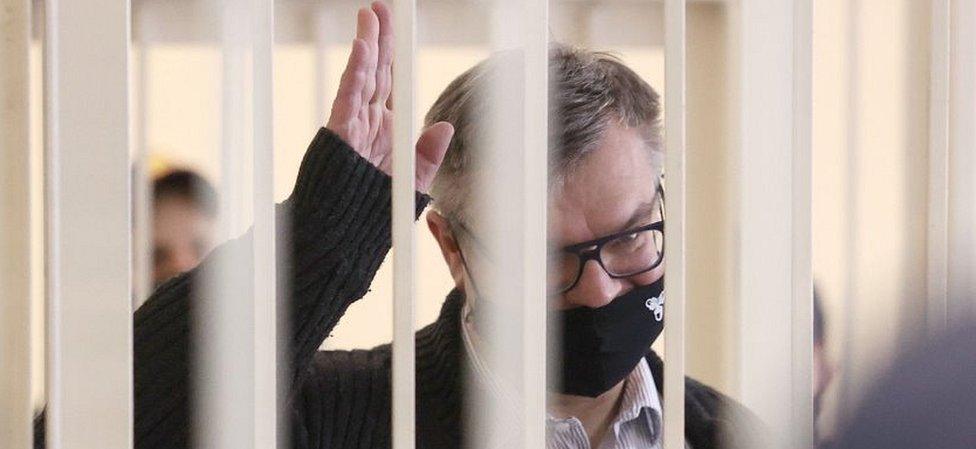
Ex-banker Viktor Babaryko on trial - he has been in custody since last June
Former banker Viktor Babaryko was barred from standing in the election and arrested in June. He is accused of taking bribes and money-laundering when he was head of Belgazprombank - charges that can bring up to 15 years in jail. Seven former colleagues are on trial with him.
Mr Babaryko, 57, has denied wrongdoing and his defence team says the case was fabricated to block him from standing against Mr Lukashenko in the election.
Police targeted protesters with stun grenades and raided flats in October 2020
After the disputed August election the Belarus opposition organised huge demonstrations every Sunday, usually with more than 100,000 people thronging the streets of Minsk.
Western governments and human rights monitors condemned Mr Lukashenko's victory as fraudulent. The EU added him and his son Viktor to its sanctions blacklist of Belarus officials., external
Russian President Vladimir Putin supports Mr Lukashenko, and their countries have long had very close ties.
Belarus police cracked down harshly on the demonstrators - thousands were arrested and many were beaten up. There were also mass anti-Lukashenko protests in other Belarusian cities. There were further arrests this week when security forces raided the homes and offices of human rights activists, journalists and trade union members.
'A fabricated case from start to finish'
Investigators in the Belsat case alleged that the TV journalists, who filmed from the 14th floor of an apartment block on 15 November, had encouraged disorder that halted 13 bus services and also blocked trolleybus and tram lines.
Belsat reports that the transport routes specified did not include the square where the journalists were filming.
Critics see the trial as part of a general crackdown on independent media in Belarus.
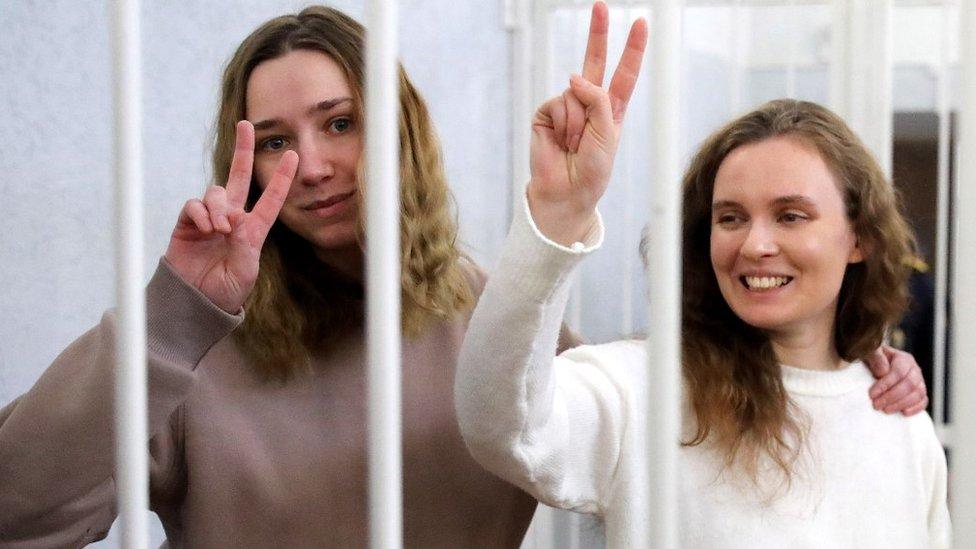
Daria Chultsova (L) insisted she had not incited anyone to commit any acts
The TV journalists had been filming a protest in support of Roman Bondarenko, an activist beaten up by masked men who were tearing down opposition symbols. Bondarenko, 31, died in police detention on 12 November.
In a court statement quoted by Belsat Ms Andreyeva denied the "incitement" charge. She said the crowd had gathered at the square already before her filming and protesters could not have watched the live stream anyway because the authorities were blocking web access to it in Minsk.
"I'm totally innocent of the crime I'm accused of. I regard this prosecution as politically motivated, a fabricated case from start to finish," she said. "It's a primitive act of secret service retribution for my professional work."
In a written statement quoted by Belsat, Ms Chultsova said "I didn't incite anyone, didn't organise, didn't urge anyone to commit any acts".
Belsat says the pair were accused of causing transport disruption costs of 11,562 Belarusian roubles (£3,194; $4,447), which they denied. However, their relatives paid that amount to the state on their behalf.
- Published17 November 2020
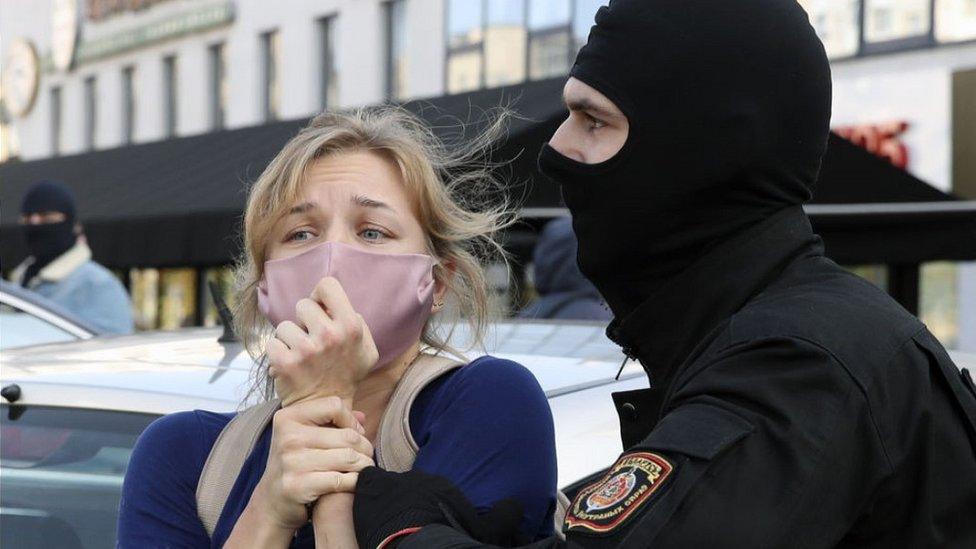
- Published25 October 2020
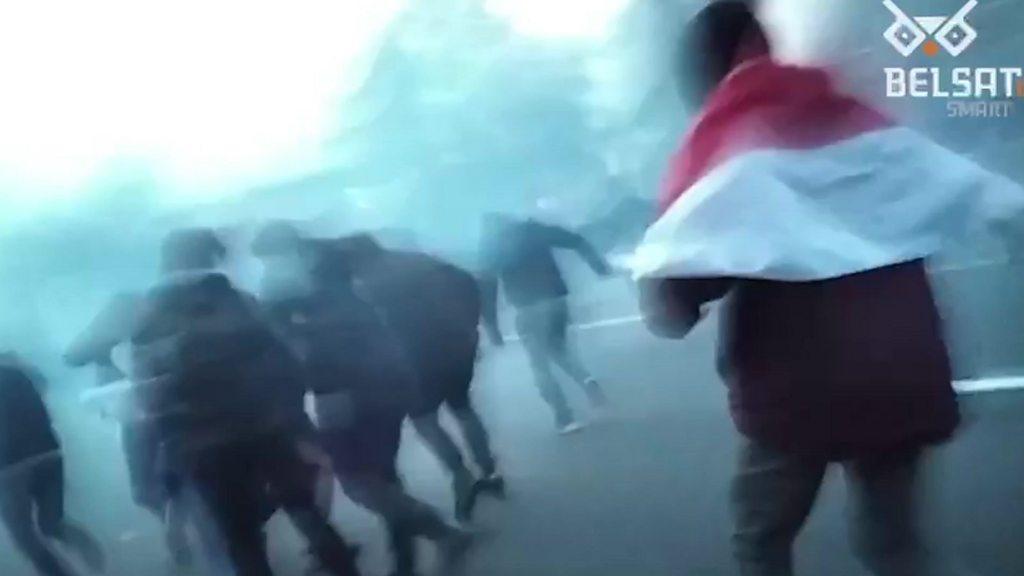
- Published15 November 2020
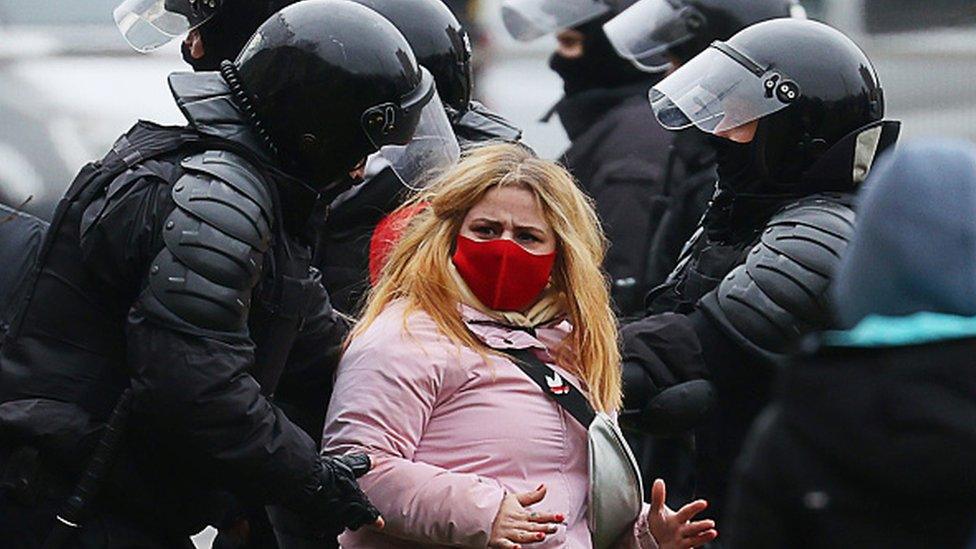
- Published1 December 2020
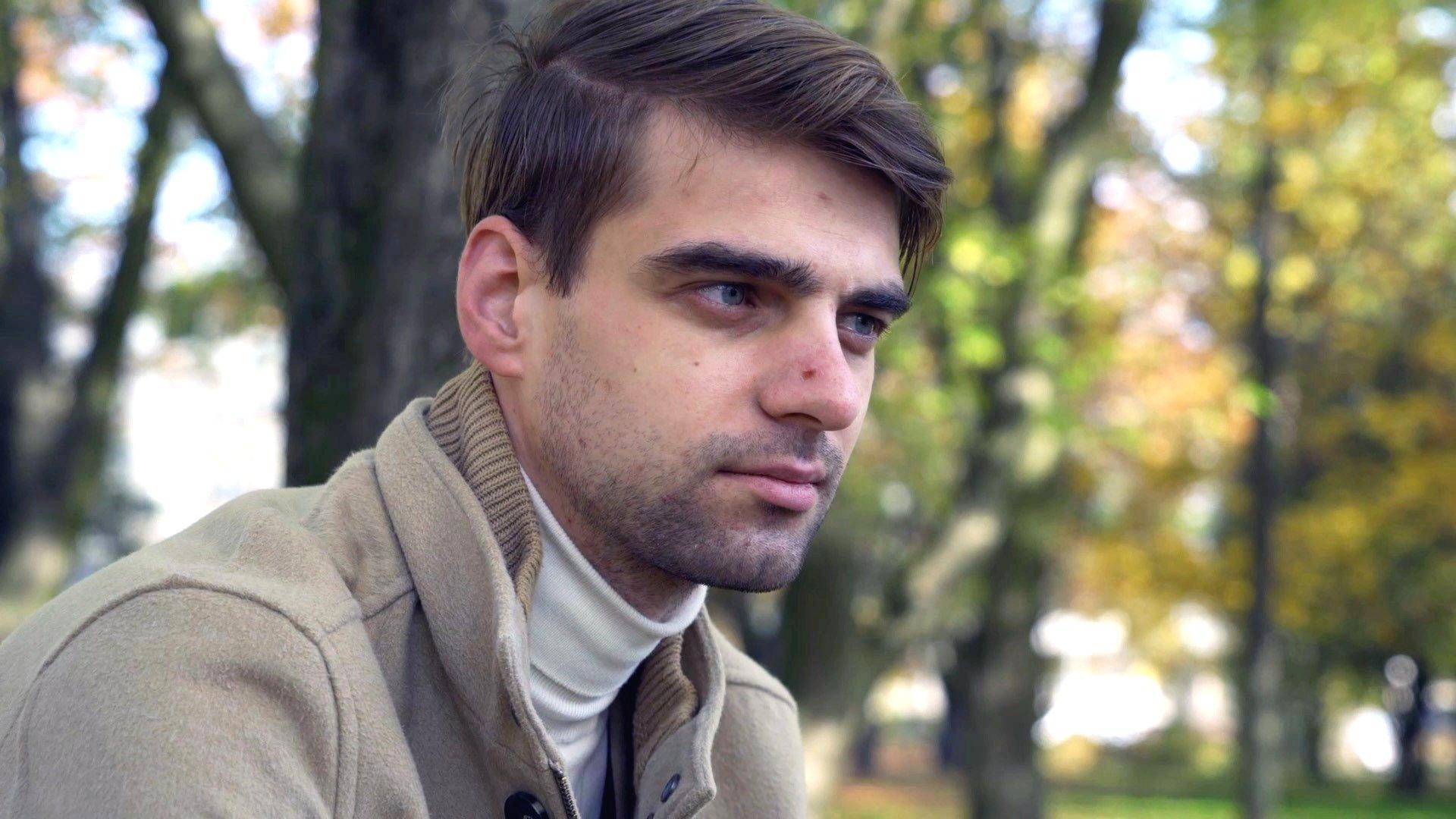
- Published6 November 2020
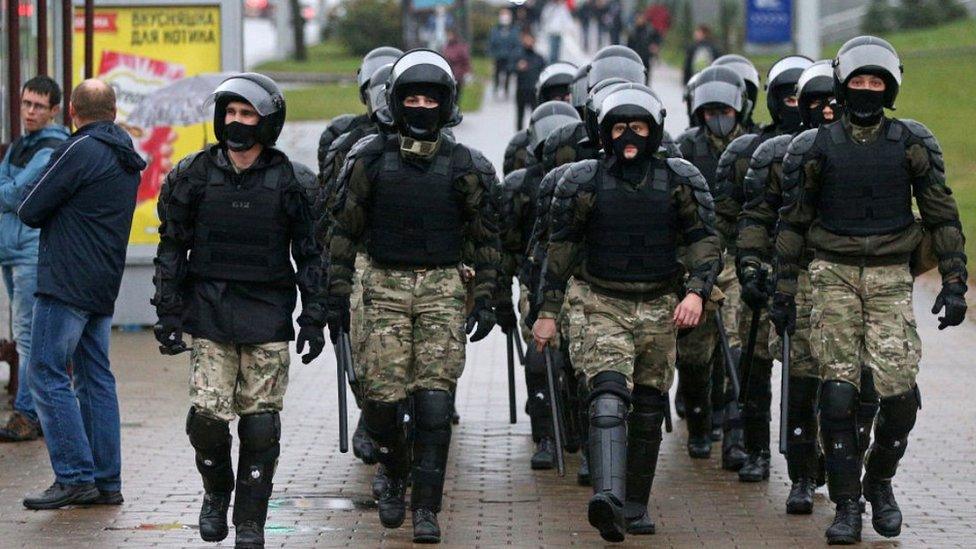
- Published15 August 2020
